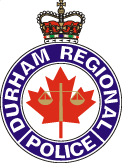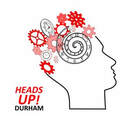Endorsement - Superintendent Adam Kelly, Durham Regional Police Service; Former Steering Committee Member: 2015

Good afternoon everyone.
First, on behalf of the Durham Regional Police Service, I would like to personally thank Linda Lowery, Ted Dionne and the entire Heads Up! Durham team for their leadership, expertise and community engagement on such a significant public health issue.
The Vision of the Durham Regional Police Service is to have the safest community for people to live, work and play. To achieve this, individuals from all walks of life must work in collaboration to prevent crime, victimization, increase community safety and well-being. Building strong relationships with community residents and stakeholders is an effective and efficient method for increasing the quality of life for everyone here in Durham Region.
As a police officer with over 26 years of experience, a current certified hockey trainer and as a parent of two boys who have played contact sports, I have seen first-hand the devastating effects head trauma has on individuals and their families. This is the reason I am so proud to be on the Steering Committee of Heads Up! Durham.
During my policing career, I have knocked on several doors to inform a family member that their loved one was seriously injured or killed as a result of a head injury. To describe those emotional moments is difficult, as you can well imagine. In many cases, these head injuries were preventable. Why does a child, teenager or adult not wear a helmet while riding a bicycle? Why does a person not wear a helmet when operating a dirt bike, motorcycle or ATV? Why does a person not wear a helmet when skiing, snowboarding or playing a friendly game of pond hockey? Why does a person not wear a seatbelt as soon as they get into a motor vehicle? Why does a pedestrian not use a controlled intersection to cross the street? Why do we have so many people still talking on their cellphones while driving? Why do we continue to talk about the tragic outcomes of drinking and driving?
Head injuries are a problem for police officers as well. There have been 85 Durham Regional Police Service employees who have suffered various head injuries while on the job over the past 5 years. Approximately 11 % have suffered a concussion. These injuries were the result of a motor vehicle collision, being assaulted, slipping or falling, or occurred during police-related training.
As a certified hockey trainer, I have seen my share of head injuries. Watching a player struggle to perform basic day-to-day functions or unable to attend school because of reoccurring headaches is concerning. Yet, we still have players and parents who want to return to play before it is safe to do so.
Last December I vividly remember sitting in the stands watching my younger son play hockey. He had just made a cross ice pass in his own end when he was body checked into the boards. He was lying there motionless, with both arms rigid above his body. It was evident that he was knocked out. I immediately ran down the stairs and around the boards to where he was lying. The trainer was over top of him. After several breath taking moments, he finally started to wiggle his feet and hands. In the dressing room, he was unsteady on his feet, his eyes were glassy, his speech was jumbled, and he felt sick and extremely fatigued. He had no memory of being on the ice. As a parent, the topic of head injury suddenly became very real. After a trip to the hospital, several visits to a sports concussion clinic, adhering to the school protocols in relation to managing concussions and following the return to play guidelines, my son has returned to playing the sport he loves.
We all have a responsibility to weave brain injury awareness, prevention, policy and support into the very fiber of our community. Today, with the launch of Heads Up! Durham, this is a fantastic opportunity to do just that.
Thank you!
First, on behalf of the Durham Regional Police Service, I would like to personally thank Linda Lowery, Ted Dionne and the entire Heads Up! Durham team for their leadership, expertise and community engagement on such a significant public health issue.
The Vision of the Durham Regional Police Service is to have the safest community for people to live, work and play. To achieve this, individuals from all walks of life must work in collaboration to prevent crime, victimization, increase community safety and well-being. Building strong relationships with community residents and stakeholders is an effective and efficient method for increasing the quality of life for everyone here in Durham Region.
As a police officer with over 26 years of experience, a current certified hockey trainer and as a parent of two boys who have played contact sports, I have seen first-hand the devastating effects head trauma has on individuals and their families. This is the reason I am so proud to be on the Steering Committee of Heads Up! Durham.
During my policing career, I have knocked on several doors to inform a family member that their loved one was seriously injured or killed as a result of a head injury. To describe those emotional moments is difficult, as you can well imagine. In many cases, these head injuries were preventable. Why does a child, teenager or adult not wear a helmet while riding a bicycle? Why does a person not wear a helmet when operating a dirt bike, motorcycle or ATV? Why does a person not wear a helmet when skiing, snowboarding or playing a friendly game of pond hockey? Why does a person not wear a seatbelt as soon as they get into a motor vehicle? Why does a pedestrian not use a controlled intersection to cross the street? Why do we have so many people still talking on their cellphones while driving? Why do we continue to talk about the tragic outcomes of drinking and driving?
Head injuries are a problem for police officers as well. There have been 85 Durham Regional Police Service employees who have suffered various head injuries while on the job over the past 5 years. Approximately 11 % have suffered a concussion. These injuries were the result of a motor vehicle collision, being assaulted, slipping or falling, or occurred during police-related training.
As a certified hockey trainer, I have seen my share of head injuries. Watching a player struggle to perform basic day-to-day functions or unable to attend school because of reoccurring headaches is concerning. Yet, we still have players and parents who want to return to play before it is safe to do so.
Last December I vividly remember sitting in the stands watching my younger son play hockey. He had just made a cross ice pass in his own end when he was body checked into the boards. He was lying there motionless, with both arms rigid above his body. It was evident that he was knocked out. I immediately ran down the stairs and around the boards to where he was lying. The trainer was over top of him. After several breath taking moments, he finally started to wiggle his feet and hands. In the dressing room, he was unsteady on his feet, his eyes were glassy, his speech was jumbled, and he felt sick and extremely fatigued. He had no memory of being on the ice. As a parent, the topic of head injury suddenly became very real. After a trip to the hospital, several visits to a sports concussion clinic, adhering to the school protocols in relation to managing concussions and following the return to play guidelines, my son has returned to playing the sport he loves.
We all have a responsibility to weave brain injury awareness, prevention, policy and support into the very fiber of our community. Today, with the launch of Heads Up! Durham, this is a fantastic opportunity to do just that.
Thank you!
